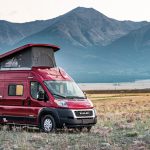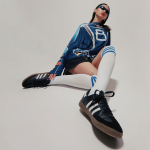For three days in March, Madison, Wisconsin is the center of the universe for paddling enthusiasts. Since 1981, the Rutabaga Paddle Shop has hosted an event called Canoecopia. Billed as the Worlds Largest Paddlesports Expo,” the event marks the beginning of the selling season for canoes, kayaks, and paddling accessories.
“It started as a local show, became a regional show and has grown to a national and international event. Half of our attendees come from the Midwest Wisconsin, Minnesota, Iowa, Illinois, and Michigan,” explained Darren Bush, co-owner of Rutabaga.
Canoecopia has an operating budget of more than six figures. “Its a significant part of our business. The biggest benefit is that it starts our season earlier. It injects cash into the business coming off a winter thats been tough,” Bush said.
Bush quotes a line from Garrison Keillor when he explains the reason the event is held in March. “March is mother natures way of giving someone who doesnt drink an idea of what a hangover is. This is the time of year everyone is sick and tired of winter. When Canoecopia arrives, spring cant be too far away,” explained Bush.
The main hall of the 100,000 square foot Alliant Energy Center is filled with 200 vendors, paddling clubs, guides, outfitters, schools, and nonprofit organizations. Thousands of visitors buy $10 tickets to look at the latest gear, take advantage of preseason sale prices, and attend more than 40 educational seminars held in six conference rooms adjacent to the display area.
In the twenty-four year history of Canoecopia, the size and scope of the exhibiting companies has changed. “The industry has gone from mom and pop type owners to larger groups hoping to take advantage of economies of scale. The big companies offer a professional approach that makes it easy to do business with, but the soul of the industry is still in the enthusiast companies run by people who actually paddle,” said Bush.
Although companies hoping to distribute their products during the three-day weekend constantly approach Bush and his staff, with very few exceptions, vendors at Canoecopia work with Rutabaga year round.
“We look at Canoecopia and the Rutabaga store as different business units. The idea behind the show is to enhance our partnership with our vendors. We think partnership is more than a word. Its important to us that when you work with somebody you have to take it past the you give me stuff and I give you money type of relationship. We dont bring in companies to test acceptance of their products, because thats not fair to my partners,” explained Bush.
Wenonah Canoes has attended Canoecopia for twenty years. “We are a supplier to specialty retailers. We dont sell direct, we dont have a company store. The opportunities for us to be face to face with the ultimate consumer are diminished. Its always an exciting opportunity to have our sales staff, support staff, and technical people meet the consumers,” said Rich Enochs, President of Wenonah.
Old Town Canoe is another vendor that has been there since the beginning. “Its kind of like fashion weekend for paddle sports. Everyone is out to look their best. Its the kick-off for the season. I get to hear what the consumers concerns are, I get to see what competitors are doing and coming out with. Its a nice place to get a feel for whats going on industry wise,” said Chris Jacobs, Director of Marketing for Old Town Canoe.
For first time exhibitor Danny Mongo and North Carolina based Impex Kayaks, Canoecopia was a chance to introduce their line of kayaks. “Were a small company and specialized in what we do. Rutabaga was the best choice for us to represent our brand. Weve been courting them for three years and it finally made sense for both of us. We came to build brand recognition and show people what were all about,” Mongo said.
Thousands of paddlers wandering the crowded aisles cross paths with senior marketing, design, and sales executives from many manufacturers. “This is a concentrated effort to spend great quality time with the ultimate consumer. In listening to their needs and how they describe their paddling experiences, it gives us an intimate customer contact that we dont experience day to day. The concentration of buyers Rutabaga has been able to develop with their marketing probably represents a significant part of the buying influence that we are going to encounter the rest of the year, “said Enochs.
Bush sees more than just corporate managers taking notes. “Buyers come from all over the country. Its too late for a manufacturer to change products for the coming season, but its not too late for a retail buyer to make preseason orders adjustments,” Bush said.
Although the Canoecopia event runs for just three days, vendor relationships are nurtured year round. “Partnership is just a word unless you can tell us what it means. Our partners support the event, send people to help us, and run clinics to help us learn more about their company,” Bush explained.
In return, Rutabaga managers and sales staff pass the information on to interested customers. “We tell brand stories in the shop. When someone comes in and says they want to do this activity. We dont just show them a boat. We tell them this is the boat from Current Designs that fits that the best. Heres the boat from Pryanha that fits that the best. That allows us to tell a story about what each brand does best. We can distill it to a very succinct story. Old Towne is the oldest canoe company in the United States. They have a tradition of conservative designs with traditional looks that appeal to a certain customer. Wenonah appeals to the high tech, ultra light person who wants the fastest and lightest,” described Bush.
The brand story is an important element in selecting products to be carried at Rutabaga.
“When we look at a brand to bring into the store, the most important brand is Rutabaga, every other brand supports that. Branding is a way to describe an idea to the customer so they get it in a holistic way. Its not like toothpaste. Outdoor technical gear has a story behind it and you have to be able to tell that well. Thats the way we help our vendors. People buy the brand, then they buy the product,” Bush explained.
Throughout the weekend, many people can be seen leaving carrying a Rutabaga bag filled with gear. People who leave empty-handed often return to the Rutabaga Paddle Shop later in the season to make their purchases. For those who return to distant cities, Bush feels they have made a contribution to the sport. “They are very good advocates of the sport and work hard to get people on the water,” said Chris Jacobs, Marketing Director for Old Town.
Exhibitors like Wenonah Canoe will head for home celebrating another opportunity to meet owners of their boats face to face. “Its always been a very positive experience for us working with Rutabaga. We do sell a lot of boats. Theres no question about that,” said Rich Enochs, president of Wenonah Canoe.
While the vendors, manufacturers, and Rutabaga certainly capitalize on the success of this event, nearly every outdoor store in the city holds a sale of some sort to attract a portion of the huge crowds that converge in Madison. One example, Carl and John's Paddlin has organized an event called Paddlers Rendezvous, which locals have dubbed Counter-copia.
This year, a Dicks Sporting Goods liquidator contracted to close a former Galyan's location took the game one step further. The contractor placed advertisements on the wall of the convention center hosting Canoecopia and Dicks employees were spotted passing out flyers inside. This set-off some alarm bells among Rutabaga management who took action to put a stop to this advertising by tearing down the banner and asking the local Sheriff to remove the employees. Following the show, Rutabaga GM Jeff Weidman sent a letter out addressing the issue. In it he said this kind of action is “bad for our industry,” “extremely tacky,” and “entirely illegal.”
BOSS contacted Weidman, who said that he realizes every outdoor and sporting goods store in town benefits from Canoecopia, but Dicks crossed the line by entering his place of business and soliciting his customers. “Its illegal. Period,” he said. “We leased the convention center and they arent even allowed to solicit or advertise in the parking lot.”
Weidman also told BOSS that he is looking for two things-an apology from Dicks “signed by some very important people,” and an apology from the liquidator.














